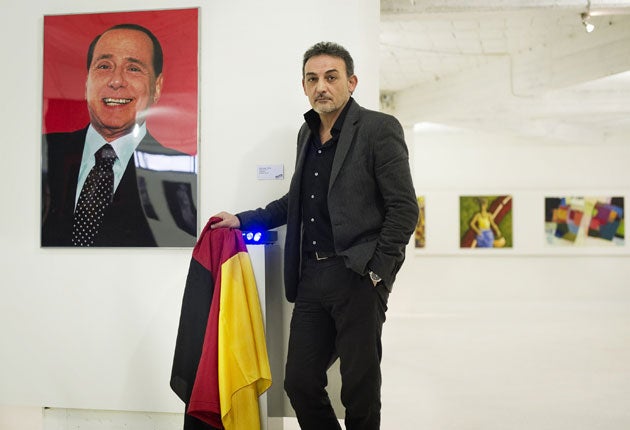Art museum seeks German asylum to flee Italy's mafia

Your support helps us to tell the story
From reproductive rights to climate change to Big Tech, The Independent is on the ground when the story is developing. Whether it's investigating the financials of Elon Musk's pro-Trump PAC or producing our latest documentary, 'The A Word', which shines a light on the American women fighting for reproductive rights, we know how important it is to parse out the facts from the messaging.
At such a critical moment in US history, we need reporters on the ground. Your donation allows us to keep sending journalists to speak to both sides of the story.
The Independent is trusted by Americans across the entire political spectrum. And unlike many other quality news outlets, we choose not to lock Americans out of our reporting and analysis with paywalls. We believe quality journalism should be available to everyone, paid for by those who can afford it.
Your support makes all the difference.Mafia threats and government incompetence drove Antonio Manfredi to the end of his tether. Yesterday the Italian museum director announced that he had written to Chancellor Angela Merkel pleading for asylum for his museum in Germany to escape the crime-ridden town in which his art collection is housed.
"I wrote a letter to Chancellor Merkel," said Mr Manfredi, the director of the Contemporary Art Museum (CAM) in Casoria, an impoverished, heavily Mafia-influenced town close to Naples in southern Italy. He declared he wanted the German chancellor to save his collection from ruin.
"I'm serious – it's not some kind of performance art," said Mr Manfredi, who also works as a sculptor. "If she gives me asylum, I'm going to pack up my bags and move to Germany with my staff and the museum's entire collection of 1,000 works," he added.
Threatening phone calls and repeated acts of vandalism have left Mr Manfredi in no doubt that he is under the near-constant surveillance of the Camorra, the name given to the Mafia in southern Italy. He said he had sent copies of his letter in Italian and German to Ms Merkel's Berlin chancellery and the German embassy in Rome.
His request for German asylum was accompanied by a broadside against Silvio Berlusconi's government for failing to take care of Italy's cultural and artistic heritage: "If the Italian government isn't capable of taking care of its cultural treasures, then let another country do it," Mr Manfredi told Der Spiegel magazine. "This is a warning scream from Italian art to the world," he added.
Mr Manfredi, 50, founded his museum in 2005 with the help of grants from his local municipality. But within three months the funding dried up and all the officials who approved the project were mysteriously replaced. In October that year Casoria's city council had to be dissolved because of fears that it had been completely infiltrated by the Camorra.
"I wanted to go on, but I realised that no town, no region, and no state would help me," Mr Manfredi complained.
His museum has collected some 1,000 pieces of contemporary art and deals with a wide spectrum of cultural issues ranging from paedophilia to urban decay. However when six West African immigrants were allegedly shot by the Camorra in Naples in 2008, the museum ran an exhibition called "AfriCAM" and then another called "CAMorra" – which was about the local mafia.
Not long afterwards, the phone threats and vandalism began. Security cameras were stolen and there were attempted break-ins. "The Mafia does not need to say outright 'we are going to kill you'," Mr Manfredi said. "You get the message anyway."
"Germany has been one of the few countries that hasn't cut its culture budget. It gives a lot of money to research unlike here," he said, adding that he had even planted a German flag outside the museum to show his support. Italy's government has slashed culture budgets in recent months, provoking a wave of protests.
However, Chancellor Merkel's office was clearly unmoved by Mr Manfredi's appeal for asylum yesterday. A spokeswoman said there would be no official response to his letter as it was considered a form of public protest rather than a genuine asylum application.
Even if Mr Manfredi and his museum were to be granted asylum, they might well be disappointed: a study by the management consulting firm A.T. Kearney in 2010 predicted that every tenth museum or cultural institution in Germany could well be forced to close by 2020 due to lack of public funding.
Join our commenting forum
Join thought-provoking conversations, follow other Independent readers and see their replies
Comments